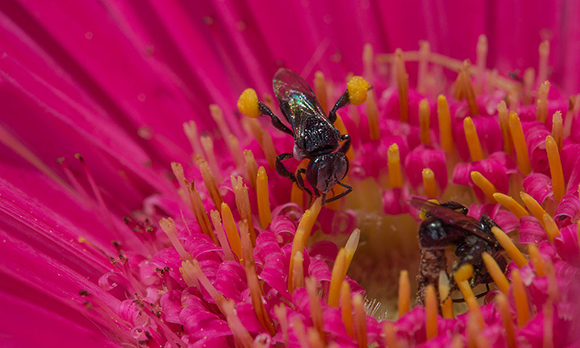
Image: Graham Wise from Brisbane, Australia [CC BY 2.0], via Wikimedia Commons
A common disease that affects European honeybees can kill Australia’s native bee species and is transmitted by pollen from shared flowers, a study by James Cook University in north Queensland has found.
The disease is caused by a spore-forming parasite, Nosema ceranae, that has been linked to declines in honeybee hive populations in Europe in recent years.
The JCU study, conducted by honours student Terence Purkiss, found that almost 70 per cent of native bees that were exposed to the disease became infected and died.